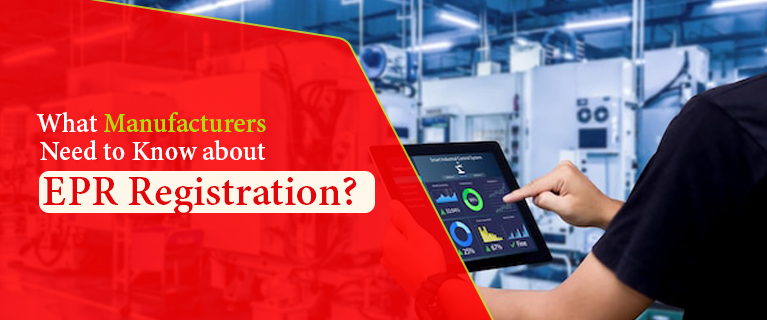EPR Registration As An Eco-Friendly Initiative
In today's world, environmental concerns have become paramount, and industries are increasingly recognizing the need to adopt sustainable practices. One such crucial initiative is Extended Producer Responsibility (EPR) registration. EPR is an environmental policy approach that aims to shift the responsibility for managing waste from the end consumer to the producers of products. The concept emphasises the principle of "polluter pays," where manufacturers, brand owners, and importers take responsibility for the entire life cycle of their products, including the post-consumer waste stage.
The Essence of EPR Registration
EPR registration is a formal process wherein producers and brand owners comply with the government's mandate to manage and recycle the waste generated from their products. The primary goal is to ensure that producers are held accountable for the environmental impact of their goods, and to create a circular economy where products are recycled, refurbished, or reused, thereby reducing the burden on landfills and promoting sustainable consumption.
The Significance of EPR Registration
1. Environmentally Responsible Production: EPR registration fosters a paradigm shift in manufacturing practices, encouraging producers to design eco-friendly products with minimal environmental impact throughout their life cycle. By implementing green production methods, manufacturers contribute to conserving natural resources and reducing carbon emissions.
2. Waste Reduction and Recycling: Through EPR registration, producers establish robust waste management systems, promoting efficient recycling and resource recovery. This aids in minimising the volume of waste sent to landfills and contributes to a cleaner environment.
3. Circular Economy Promotion: EPR registration aligns with the principles of a circular economy, wherein products and materials are kept in use for as long as possible through recycling and repurposing. By adopting circular economy practices, businesses create a sustainable and regenerative economic model.
4. Compliance with Regulatory Requirements: EPR registration is often a legal requirement mandated by governments to address the growing concern of waste management. By complying with these regulations, producers avoid penalties and legal repercussions while demonstrating their commitment to sustainable practices.
5. Enhanced Brand Reputation: Companies that obtain EPR registration exhibit their commitment to environmental stewardship and responsible business practices. This positively impacts their brand reputation, attracting environmentally conscious consumers and stakeholders.
6. Resource Conservation and Energy Savings: EPR registration drives the conservation of natural resources, as recycled materials require significantly less energy to produce than virgin materials. This contributes to energy savings and reduces greenhouse gas emissions.
The Process of EPR Registration
The process of obtaining EPR registration may vary depending on the specific regulations and policies set by each country or region. However, the general steps involved in EPR registration are as follows:
1. Understanding Applicability: Producers and brand owners must first determine if their products fall within the scope of EPR registration. This involves identifying the products covered under the EPR regulations and assessing their environmental impact.
2. EPR Agreement: Once the applicability is established, producers enter into an agreement with the relevant regulatory authority to assume responsibility for managing the post-consumer waste generated from their products.
3. Waste Collection and Management Plan: Producers develop a comprehensive waste collection and management plan outlining the methods for collecting, recycling, and disposing of the waste generated from their products.
4. Financial Obligations: Producers may be required to make financial contributions toward the establishment and operation of waste management facilities or recycling programs. These contributions are calculated based on the quantity and type of products placed on the market.
5. Reporting and Compliance: Producers are obligated to submit periodic reports to the regulatory authority, detailing their waste management activities and progress towards achieving recycling and recovery targets.
6. Audits and Inspections: Regulatory authorities may conduct audits and inspections to ensure that producers are adhering to their EPR obligations and meeting the required standards.
Read Also This - Embracing EPR Registration as a Sustainable PathwayConclusion
EPR registration is a critical step towards achieving a sustainable and environmentally responsible future. By encouraging producers and brand owners to take responsibility for the entire life cycle of their products, EPR promotes waste reduction, resource conservation, and the transition to a circular economy. By embracing EPR registration, businesses demonstrate their commitment to environmental sustainability and play an active role in addressing the global challenge of waste management. As more industries and countries adopt EPR practices, the world moves closer to a greener, cleaner, and more sustainable future for generations to come.



Comments
Post a Comment